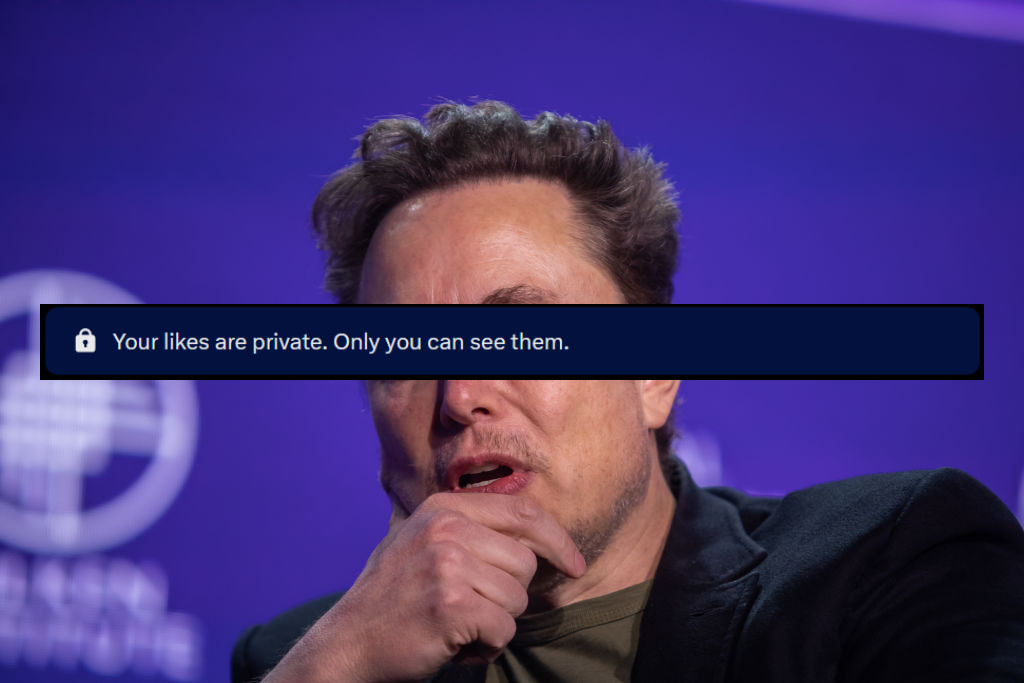I spend too much time on Twitter, though in my defense, so do plenty of you. Back in high school, my account got temporarily suspended. A few of my teachers followed me, and I remember one of them asking during class if I'd been reactivated. Despite the total collapse of the platform into a cesspool of Elon Musk's hallucinations, I still can't bring myself to leave. "Maybe, it'll be fine if I just stick to my little corner of the internet," I say. But every time I think it can’t get worse, Elon Musk makes my Special Place just a little (or a lot) more shitty.
Haofei Wang, the company's director of engineering, hinted at a change to the public visibility of Twitter likes last month, implying that he wanted people to feel more comfortable engaging with "edgy" content. The knife came down on Wednesday afternoon when the likes tab disappeared for me on other users' pages. In the way that adding AI to Google's search engine rendered it unhelpful, Twitter's newest update eliminates what I consider to be one of the platform's most important utilities. Stalking someone's likes is, in fact, a tried-and-true way of vibe-checking someone. You discover all their little hobbies, what news they've been following, and the hot takes they might agree with. I know friends who will search for their professors, interviewers, or dates on Twitter—the same as they would on Open Secrets' donor look-up—to gauge the political leanings of the person they're about to interact with.
I, too, have often looked into the likes history of other Twitter users—most frequently celebrities, athletes, politicians, and other public figures. When I have too much time on my hands, I have scrolled through hundreds, if not thousands of tweets, until I find something nice to chew on. "Wow," I'll say. "She definitely didn't vote for Trump! But her husband is a Libertarian, for sure." Sometimes, the dig can yield other intriguing results, like when hockey fans looked into the engagement history of Flyers forward Garnet Hathaway. Don’t worry Mr. Hathaway, I saw you like that tweet about bi erasure.
i think now is the perfect time to remind everyone of the time garnet hathaway liked this random tweet about bi erasure pic.twitter.com/kAr9NUjDxk
— tortured caps fan department (@vitekvanecek) February 3, 2022
There have also been iconic, scandalous moments—remember when Ted Cruz got flamed because people found porn in his Twitter likes back in 2017? Wow, I was 13 when that happened!
But more notably, Twitter likes have reliably exposed the bigoted opinions of all sorts of people. It's a measure of accountability for the footprints we leave on the internet. And sure, it's good to know where your government representative really stands on, say, reproductive justice, but given the cultural value of sports and its constant role in activism and politics, this social responsibility applies to our favorite athletes and teams as well.
Just this week, PWHL Minnesota, which recently won the league's inaugural championship, pissed off fans by drafting the University of Wisconsin's Britta Curl with the ninth overall pick. A scroll through Curl's Twitter likes revealed posts that described LGBTQ+ products as "perverted," supported anti-vax messaging, and called those who disagreed with her trans-exclusionary perspective on women's sports "weirdos." She also liked a tweet about Kyle Rittenhouse's "Not Guilty" verdict. You can take that as you will, and fans did.
By the time of the draft, many fans were aware of Curl's Twitter history, and they were hoping that in a league with so many queer fans and athletes, teams would skip her. After Minnesota announced her selection, you could actually hear boos from the crowd at Roy Wilkins Auditorium, where the draft was being held. At future drafts, this style of prospect vetting won't be possible. I don't think we're going to have a shortage of racist or homophobic tweets to discover across Twitter, but the "like" was an effective red flag for a narrow-mindedness you don't want anywhere near your roster.
I do believe we live in a world where we know way too much about each other, and that having some privacy from the thoughts of others might be helpful for our collective health. Like, I would rather not know what Terry Rozier thinks about feet. But it's also good to have some sort of wellness check available for when someone gets too deep into Holocaust conspiracies. Twitter can espouse "privacy" all they want, but if we're to take what Wang said seriously, we know that they're trying to bring peace of mind to their increasingly far-right fanbase. The loss of public likes will eliminate much of the friction that made some users more hesitant to juice the engagement on a hateful account—which then amplifies it in an algorithm that aims to radicalize. With Twitter being one of the places high school athletes turn to for college recruitment, I can already see some of them getting more than what they bargained for. I don't think the adults will handle it any better.






